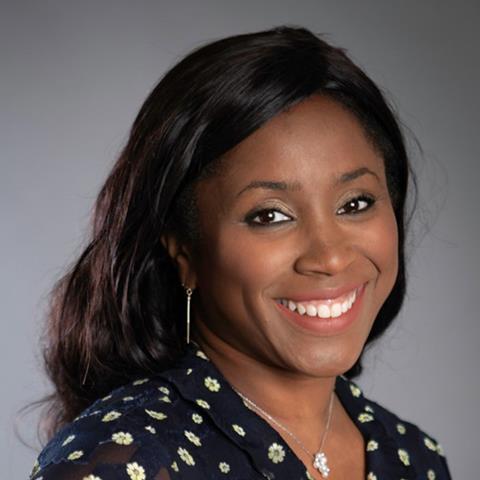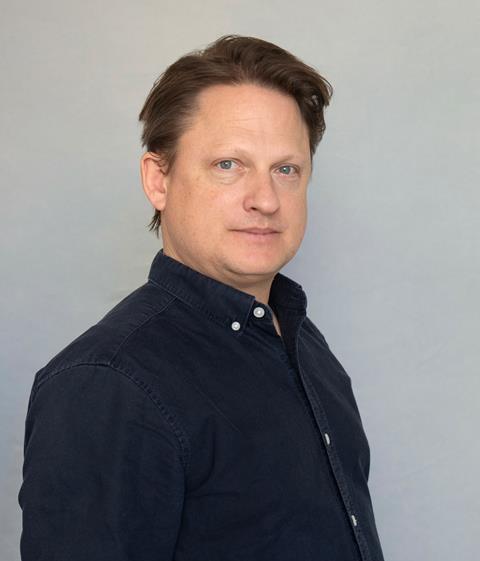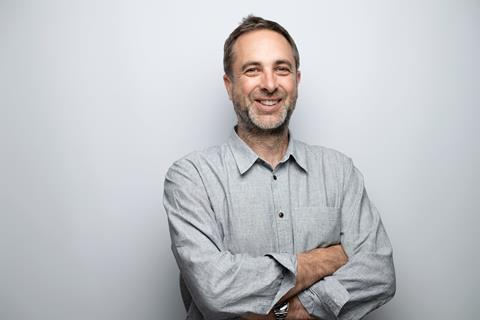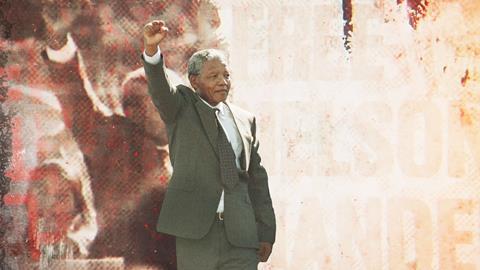Rogan Productions uncovers what is believed to be former South African leader’s first TV interview
Nelson Mandela’s extraordinary life has inspired a multitude of documentaries but the key role that music played in his walk to freedom has received less attention over the years.
Free Nelson Mandela from UK-based Rogan Productions aims to change that.
The show was co-produced with GroupM Motion Entertainment for Channel 4 in the UK and (1 x 90 minutes or 3 x 45 minutes) charts Mandela’s journey from activist to democratically elected leader of South Africa, delving deep to uncover unknown stories, unseen footage and the key role that musicians such as Steven Van Zandt and Peter Gabriel played in his story.
It is being sold by BBC Studios, which has a development deal with Rogan, and is the latest in a series of shows the two companies have worked on, following the likes of Freddie Mercury: The Final Act and Becoming Frida Kahlo.
Context and creativity
“One of the things that we are always looking to do is to tell the stories of iconic, world-changing figures, but to position the story in the moment,” explains creative director James Rogan, who works alongside managing director Soleta Rogan at the company. “It’s never backwards-looking, we tell these stories from the ground up and generally we use culture to bring these stories to life.”

Rogan had been looking to produce a show about Mandela for more than a decade, partly because of James Rogan’s South African roots. “He’s always been a huge part of my life because I’m half South African and one of the great things about being a director is that you can choose the subjects you care most about.
“It’s a dream come true to be able to make a story not just about Mandela but about the fight to free him and to deliver that with the sort of emotion and impact that we have,” James Rogan says.
And while the show had been germinating for years, it was weaving in the vital role that musicians played in the story that gave it a unique hook. By April 2024, the project had settled into its current form when the UK’s Channel 4 boarded.
James Rogan adds that the title – Free Nelson Mandela – also provided a moment of “crystallisation”.
“It was [a] very obvious [title], very clear but totally right, because it gave you a space to tell the story,” he says. “This is a show about a defined period of time. It tells the story pretty much from when he goes into prison to when he comes out, and everything that went into getting him out.”
Soleta Rogan adds that the contemporary relevance of the stories emerging in the doc – which covers how he moved into politics, his time in prison and the fight to free him – means it will appeal not only to Channel 4 but also viewers internationally.
“You’ve just got to lean into the fact that there’s so much universality in those themes, things like division, like activism, the issue of unheard voices or underrepresented people rising up. These are all things that are sadly still relevant and prevalent today.
“People then realise that actually, even though [Mandela’s] prison story may seem quite historic and far away, it’s actually very present and very relevant now to a lot of people.”
Footage and challenges
The challenge of producing a documentary about Mandela during this period of his life was that footage of the man himself available was scarce.
“Mandela is in prison during this time, so there aren’t many images of him at all - I mean, there are maybe six or seven,” James Rogan says. The producers aimed to use this to their advantage by creating a show that weaves his struggle with the struggle of those trying to help him, and in particular the musicians who were amplifying those efforts.

“That approach meant I had this incredibly rich cache of archive and I could immediately see how I would visualise this film. And when you watch it, you’ll see that it’s vividly visualised - it’s not just a film about the songs, and it’s not just a film about Mandela.
“It’s about the sweat and blood and tears that went into one of the most significant movements of the 20th century.”
The show is “shot through with some of the best protest music ever written,” adds James Rogan, highlighting songs such as Free Nelson Mandela from Jerry Dammers of The Specials, Stevie Van Zandt’s Sun City record, which raised vital funds for the anti-apartheid cause, and Johannesburg, from Brian Jackson and Gil Scott-Heron.
Dammers, Van Zandt and Jackson all contribute to the doc, alongside Bono and Peter Gabriel, the latter being behind Biko, about the black anti-apartheid activist Steve Biko who died in 1977.
“What we really liked about the show,” adds Tom Young, head of indie partnerships for factual at BBC Studios, “was their ability to take a historical story but place it and bring in the music. It makes it feel very accessible to audiences.”
Rogan employs flashbacks to tell the story of how Mandela became politicised after experiencing racism, using his own voice, as well as contributions from his daughter and his closest advisor Barbara Masekela.
Persuasive case
Securing access to these voices was, James Rogan says, a case of making “a persuasive case that this would be the definitive Mandela series of its time,” while gathering footage threw up some unexpected surprises, helped by the expertise of researcher Tracy Lee.
“I never quite know what is true but I can certainly say that as a Mandela watcher, I have never seen the footage we have now. I think we’ve got his very first interview on TV. Mostly people think of his first interview as being with ITN in 1961 – that’s the famous interview, and we have that in the series.

“But we’ve also got what we think is his very first appearance in 1956 in which he talks about the ANC and his commitment to the struggle. That was a big punch in the air moment during the production.”
For Soleta Rogan, the show’s commission comes against what she describes as a “challenging” factual sector but she also highlights that zigging when others zag has benefits. “I think it’s a mark of distinction that lots of people are not making shows on the subjects that we’re making, so we’re able to cut through on an international platform.
“It’s actually an opportunity. Not everybody is making programmes in the way we are, or on the subjects that we’re focusing on, so we’ve got to use that to our advantage.”
For BBCS’s Young, Rogan’s form on previous docs and its approach to documentary making is helping to open doors outside of the UK. “People have become accustomed to Rogan’s take on some of these stories, and certainly from our buyers’ points of view, they know what Rogan deliver. It’s a slightly modern take on stories that feel of the moment.”
And while factual is a major part of the Rogan repertoire, Soleta says the company is also broadening its output and exploring how scripted can become part of the mix.
“We’ve also recently moved into popular factual, so we’re very much an ever-evolving company,” she adds. “We’re creatively led in that we will make what we creatively like. We want shows that make you feel something and we go from there.”



![AR-B-241_KevinCummins_Bowie_Leeds_1_6_010173[8]](https://d11p0alxbet5ud.cloudfront.net/Pictures/100x67/5/4/7/1463547_arb241_kevincummins_bowie_leeds_1_6_0101738_503046.jpg)




![Cristal + Viivi[1]](https://d11p0alxbet5ud.cloudfront.net/Pictures/100x67/1/2/6/1470126_cristalviivi1_399326_crop.jpeg)
No comments yet